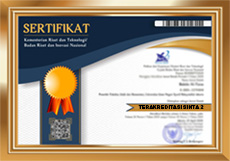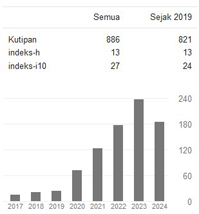HANNAH ARENDT ON “WORLDLESSNESS” AND CRIMES AGAINST HUMANITY
Abstract
Keywords: “Worldlessness”, crimes against humanity, anti-Semitism, imperialism, “rightlessness”.
Full Text:
PDFReferences
Arendt, Hannah. “Social Science Techniques and the Study of Concentration Camps” (1950). In Jewish Social Studies, Vol. 12.No.1. Indiana: Indiana University Press.
-------------. The Origins of Totalitarianism. New York: A Harvest Book,Harcourt Inc., 1951.
-------------.The Human Condition. Chicago: The University of Chicago Press,1958.
--------------. Between Past and Future. New York: The Viking Press, Inc.,1961.
--------------. Eichmann in Jerusalem: A Report on the Banality of Evil. New York:Penguin Group Ltd., 1963.
--------------. Essays in Understanding. New York: Schocken Books, 1994.
--------------. The Jewish Writings (2007). New York: Schoken Books.
Batkay, William. “Judaism Challenge to the Idea of the Nation State: A Reappraisal of Hannah Arendt.” In History of European Ideas, Vol.20, 1995.
Betz Hull, Margaret. The Hidden Philosophy of Hannah Arendt. London and New York: Routledge Curzon, Taylor & Francis Group, 2002.
Birmingham, Peg. Hannah Arendt & the Human Rights: the Predicament of Common Responsibility. Bloomington & Indianapolis: Indiana University Press, 2006.
Buckler, Steve. Hannah Arendt and Political Theory:Challenging the Tradition. Edinburgh: Edinburgh University Press Ltd., 2011.
Crick, Bernard. “Reputations: Hannah Arendt and the Burden of Our Times.” In The Political Quarterly, 1997
Gill, Richard J. “Arendt on ‘Universal Science’: the Holocaust and the Question of Technology.” In http://www.angelfire .com/folk/richardjgill/five.html.
---------------. “Modern Worldlessness and New Beginnings: Arendt’s Critique of the Rise of ‘Society’.” In http://www.angelfire .com/folk/richardjgill/three.html.
Gottsegen, Michael G. The Political Thought of Hannah Arendt. Albany:State Universtity of New York Press, 1994
Hayden, Patrick. “The Relevance of Hannah Arendt’s Reflections on Evil:Globalization and Rightlessness.” In Human Rights Review, 2010.
Horkheimer, Maxand Adorno, Theodor. Dialectic of Enlightenment, Edmund Jephcott (tras.). California: Stanford University Press, 2002.
Isaak, Jeffrey. ”A New Gurantee on Earth: Hannah Arendt on Human Dignity and the Politics of Human Rights.” In The American Political Science Review, Vol. 90, No. 1, 1996.
Janover, Michael. “Politics and Worldliness in the Thought of Hannah Arendt.” In Action and Appearance, Anna Yeatman, cs., (eds.).London: The Continuum International Publishing Group, 2011.
Kateb, George. ”Ideology and Storytelling.” In Social Research, Vol. 69.No. 2, 2002.
Lang, Berel. “Hannah Arendt and the Politics of Evil.” In Judaism, Vol. 37,No. 3, 1988.
Perrone-Moisés, Cláudia. “Forgiveness and Crimes against Humanity: A Dialogue between Hannah Arendt and Jacques Derrida.” In http://hannaharendt.net/research/perronelII.html. 2006
Rensman, Lars. “Grounding Cosmopolitics: Rethinking Crimes against Humanity and Global Political Theory with Arendt and Adorno.” In Arendt & Adorno: Political and Philosophical Investigations. California:Stanford University Press, 2012.
Young-Bruehl, Elizabeth. Why Arendt Matters. New Haven & London:Yale University Press, 2006.
DOI: http://dx.doi.org/10.31385/jl.v14i1.9.109-128
Refbacks
- There are currently no refbacks.

Copyright© 2015 JURNAL LEDALERO This work is licensed under a Creative Commons Attribution-NonCommercial-ShareAlike 4.0 International License.
Institut Filsafat dan Teknologi Kreatif Ledalero Jalan Trans Maumere-Ende - Sikka - Flores - Nusa Tenggara Timur - Indonesia Telp/Fax: 0382 2426535










